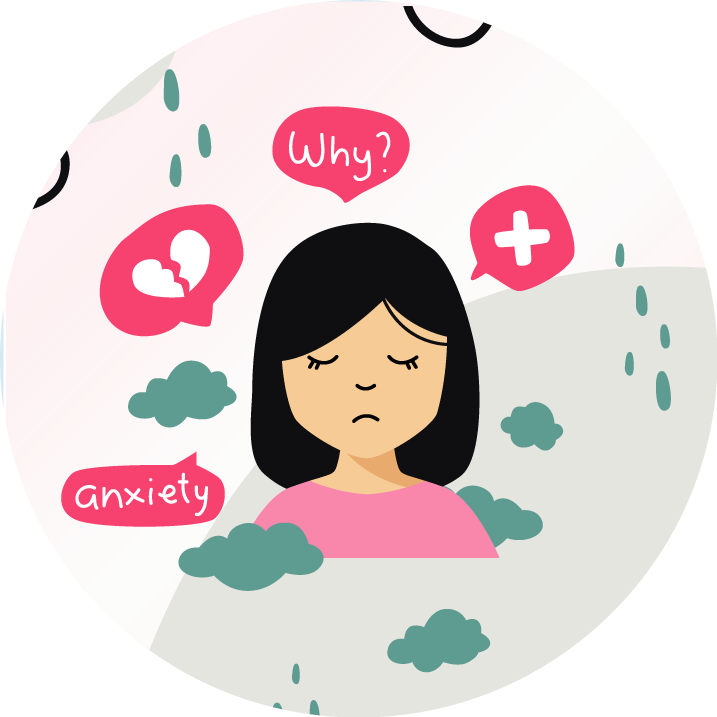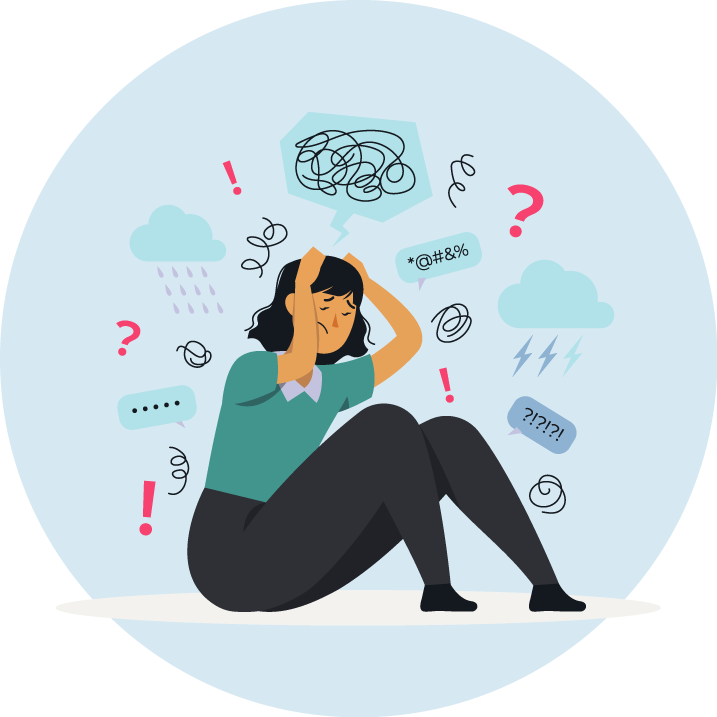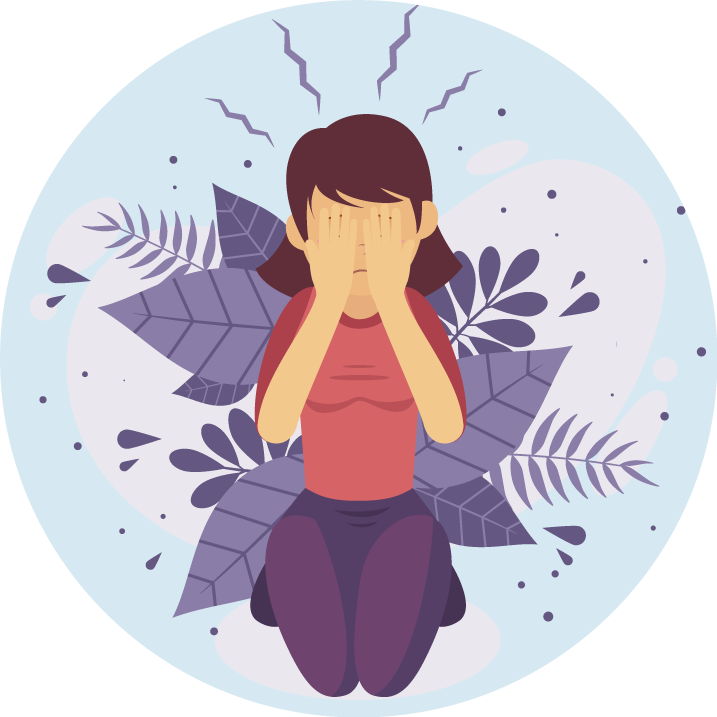How to Be Less Emotionally Reactive

How to Be Less Emotionally Reactive
September 22 2025 TalktoAngel 0 comments 30 Views
Emotions are an essential part of being human. They inform our decisions, deepen our relationships, and help us navigate life. However, when emotions begin to control our responses instead of guiding them, we may find ourselves trapped in cycles of regret, conflict, or stress. Emotional reactivity, responding intensely or impulsively to emotional triggers, can damage relationships, hinder productivity, and compromise mental well-being.
If you often find yourself overreacting to small issues, becoming defensive easily, or feeling overwhelmed in emotionally charged situations, it’s time to develop emotional regulation skills. The good news? Emotional reactivity isn't permanent. It’s a habit of mind and like any habit, it can be changed with awareness, intention, and practice.
What Is Emotional Reactivity?
Emotional reactivity is the tendency to respond to situations with strong emotions and impulsive, unrestrained actions. These reactions are often out of proportion to the situation and may arise from past experiences, unresolved trauma, or deeply ingrained thought patterns. For instance, a simple disagreement at work may feel like a personal attack, leading to anger or withdrawal.
People who are emotionally reactive often experience:
- Quick shifts in mood
- Intense anger, anxiety, or sadness
- Difficulty calming down
- Regret after emotional outbursts
Although experiencing emotions is natural, responding impulsively without thoughtful consideration can result in miscommunication and tension in relationships.
Why Do We Become Emotionally Reactive?
Emotional reactivity originates in the brain's limbic system, especially the amygdala, which interprets perceived threats and activates the fight-or-flight response. When we perceive danger, even if it's not physical (like criticism or rejection), our brain may react as if we’re under attack.
Several factors can increase emotional reactivity:
- Chronic stress or burnout
- Unresolved trauma
- Poor sleep or physical health
- Low emotional awareness
- Rigid thought patterns (e.g., black-and-white thinking)
Becoming less emotionally reactive means retraining your brain to pause, reflect, and respond more thoughtfully.
Practical Steps to Reduce Emotional Reactivity
1.Cultivate Emotional Awareness
The first step is to become aware of what you're feeling. Many of us react before we even understand our emotions. Start by labeling your feelings: are you angry, hurt, anxious, or embarrassed?
Practicing mindfulness can enhance emotional awareness. By mindfully noticing your thoughts and bodily sensations without judgment, you gain the capacity to accept your emotions without letting them take control.
Tip: Keep a daily emotion journal. Note what triggered your emotions, how you responded, and what you wish you had done differently.
2.Pause Before Reacting
When you feel triggered, give yourself space before responding. This moment of pause is where your power lies. Even a few seconds can interrupt an automatic emotional reaction and allow your rational brain to engage.
- Try using the S.T.O.P. technique:
- S – Stop what you’re doing.
- T – Take a few deep breaths.
- O – Observe your thoughts, emotions, and bodily sensations.
- P – Proceed mindfully.
3.Challenge Your Thoughts
Our reactions are often fueled by distorted thinking like assuming the worst, personalizing events, or catastrophizing outcomes. Learn to question your thoughts instead of blindly accepting them.
Ask yourself:
- Is this thought true?
- Am I interpreting the situation fairly?
- Could there be another explanation?
Cognitive restructuring, a technique from Cognitive Behavioral Therapy (CBT), helps in identifying and replacing irrational thoughts with more balanced perspectives.
4.Practice Grounding Techniques
When emotions run high, grounding techniques can bring you back to the present moment and reduce physiological arousal.
Some effective grounding strategies include:
- Deep belly breathing
- Splashing cold water on your face
- Holding an ice cube
- 5-4-3-2-1 sensory exercise (naming 5 things you see, 4 you can touch, etc.)
These techniques help disengage the emotional brain and activate the parasympathetic nervous system, which promotes calmness.
5.Strengthen Emotional Resilience
Emotional resilience refers to the capacity to recover and adapt effectively in the face of stress, adversity, or emotional setbacks. The more resilient you are, the less likely you’ll overreact in stressful situations.
To build resilience:
- Maintain a regular sleep schedule
- Engage in physical activity
- Nourish your body with healthy food
- Cultivate supportive relationships
- Engage in meaningful activities
Building resilience is a gradual process, but it lays the groundwork for lasting emotional strength and stability.
6.Set Healthy Boundaries
Sometimes, emotional reactivity stems from feeling overwhelmed, disrespected, or taken advantage of. Establishing clear boundaries safeguards your emotional well-being and preserves your personal energy. Learn to say “no” when needed and communicate your needs assertively not aggressively. Healthy boundaries empower you to respond instead of react.
7.Seek Professional Support
If emotional reactivity is interfering with your relationships or daily functioning, don’t hesitate to seek help from a mental health professional. Therapists can help you explore the root causes of your reactivity and teach you personalized strategies to manage it effectively. Talktoangel is a global mental health platform to seek counseling, online therapy, as well as guidance. Therapeutic approaches like CBT, Dialectical Behavior Therapy (DBT), and mindfulness-based interventions have proven effective in reducing emotional reactivity.
Conclusion
Learning to be less emotionally reactive isn’t about suppressing your feelings, it's about responding to them with intention, clarity, and compassion. Emotional self-regulation is a skill that grows with consistent practice. By becoming more aware of your triggers, challenging your thoughts, and adopting healthy coping strategies, you empower yourself to live a calmer, more connected life.
Remember, you don’t have to master this overnight. Progress takes patience. But every mindful response you make strengthens your emotional intelligence and brings you closer to lasting peace.
Contributed by: Dr (Prof.) R K Suri, Clinical Psychologist & Life Coach, & Ms. Tanu Sangwan, Counselling Psychologist
References
- Linehan, M. M. (2014). DBT Skills Training Manual (2nd ed.). Guilford Press.
- Siegel, D. J. (2010). The Whole-Brain Child: 12 Revolutionary Strategies to Nurture Your Child's Developing Mind. Delacorte Press.
- Neff, K. (2011). Self-Compassion: The Proven Power of Being Kind to Yourself. William Morrow.
- Beck, J. S. (2011). Cognitive Behavior Therapy: Basics and Beyond (2nd ed.). Guilford Press.
Leave a Comment:
Related Post
Categories
Related Quote

“Anxiety is a thin stream of fear trickling through the mind. If encouraged, it cuts a channel into which all other thoughts are drained.” - Arthur Somers Roche

"It is okay to have depression, it is okay to have anxiety and it is okay to have an adjustment disorder. We need to improve the conversation. We all have mental health in the same way we all have physical health." - Prince Harry

“You say you’re ‘depressed’ – all I see is resilience. You are allowed to feel messed up and inside out. It doesn’t mean you’re defective – it just means you’re human.” - David Mitchell, Cloud Atlas

“I have learned not to worry about love; but to honor its coming with all my heart.” - Alice Walker

“Stress is an ignorant state. It believes that everything is an emergency. Nothing is that important.” - Natalie Goldberg
Best Therapists In India























SHARE